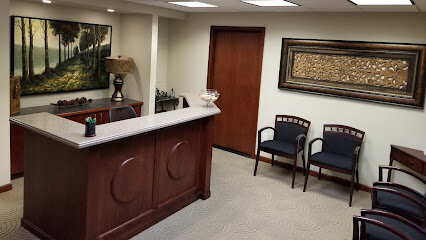Best Toxic Mold Lawyers in Washington
Share your needs with us, get contacted by law firms.
Free. Takes 2 min.
Or refine your search by selecting a city:
List of the best lawyers in Washington, United States
About Toxic Mold Law in Washington, United States
Toxic mold refers to mold growths that release harmful substances known as mycotoxins. These can contaminate buildings and negatively impact the health of occupants. In Washington, toxic mold problems have become increasingly common due to the state's rainy climate. When mold contamination occurs in homes, apartments, workplaces, or public buildings, it can lead to significant property damage as well as serious health concerns such as respiratory issues, allergies, and aggravated asthma.
The legal landscape regarding toxic mold in Washington is complex. It involves health, safety, and property regulations, as well as legal concepts such as negligence, warranty of habitability, and disclosure requirements. If you are a tenant, landlord, homeowner, or business owner affected by toxic mold, understanding your rights and obligations under Washington law is essential.
Why You May Need a Lawyer
Legal issues surrounding toxic mold can quickly become complicated. Common situations people may require legal help include:
- Landlords and tenants disagreeing about responsibilities for mold remediation
- Health problems such as worsening allergies or asthma linked to suspected mold exposure
- Home buyers discovering mold after purchasing property, and seeking recourse against sellers
- Condo associations dealing with mold outbreaks in shared spaces
- Property damage claims with insurance companies being denied or underpaid
- Employers failing to provide a safe workplace free from mold
- Schools, hospitals, or public facilities not addressing mold risks, resulting in health hazards
A lawyer can help you understand your rights, negotiate solutions, pursue compensation for damages and health impacts, and ensure proper remediation is performed. They can also represent you in conversations or disputes with landlords, insurers, employers, or contractors.
Local Laws Overview
Several Washington state and local laws are relevant to toxic mold cases. While Washington does not have a specific statewide "mold law," the following key points are important:
- Landlords are required to maintain rental units in a habitable condition, which includes addressing water leaks and preventing mold growth under RCW 59.18.060 (Residential Landlord-Tenant Act).
- Landlords must provide information about mold to tenants upon signing a rental agreement, as required by RCW 59.18.060(13).
- The state building code references ventilation and construction methods to reduce mold risk.
- Property sellers must disclose known material defects including water damage and mold in real estate transactions under the Washington Seller Disclosure Statement (Form 17).
- The Washington State Department of Health provides guidelines for mold cleanup but no enforceable standards for allowable indoor mold levels.
- Some cities and counties may have additional building or health codes relating to mold prevention and remediation.
- General legal principles like negligence, breach of contract, and warranty apply to many mold claims.
Legal outcomes can depend on whether the party responsible for maintenance (landlord, seller, builder, property manager) acted reasonably and swiftly to resolve mold issues.
Frequently Asked Questions
What are the health risks of toxic mold exposure?
Toxic mold can cause respiratory symptoms, allergic reactions, headaches, skin irritation, and can aggravate asthma. Prolonged exposure may result in more severe health problems, especially for children, the elderly, and immunocompromised individuals.
What should I do if I discover mold in my rental in Washington?
Notify your landlord in writing as soon as possible. The landlord is typically responsible for fixing leaks and addressing mold unless you caused the problem through neglect. Document everything and keep records of your communications.
Can I withhold rent until mold is removed?
Withholding rent can risk eviction. Instead, follow Washington's legal procedures for repair issues, such as issuing written notice and allowing your landlord a reasonable time to fix the problem. Consult an attorney before withholding rent.
Is my landlord required to test for mold?
Washington law does not specifically require landlords to test for mold, but they must fix conditions likely to cause mold, such as water leaks. Some leases may include additional requirements.
What disclosures are required when selling a home?
Sellers must disclose known material defects, including water intrusion and mold, on the Seller Disclosure Statement (Form 17) as part of most real estate transactions.
Can I sue my landlord for health problems caused by mold?
You may have legal rights to compensation if your landlord failed to address mold after proper notice and you suffered health impacts. These cases are complex and may require expert medical testimony and legal representation.
Is insurance coverage available for mold damage?
Property insurance policies in Washington often exclude mold damage unless it is directly caused by a covered event, like a burst pipe. You should review your policy and consult with your insurer or an attorney regarding coverage.
How is responsibility for mold cleanup determined in shared buildings or condos?
Responsibility depends on the location and cause of the mold. Homeowners associations typically repair common areas, while homeowners handle issues inside their units. Review governing documents and local laws.
What evidence do I need for a toxic mold claim?
Useful evidence includes photos, repair records, communications with responsible parties, professional mold inspection results, medical records, and any documentation showing the harm or loss suffered.
Who can I contact if my child's school has a mold problem?
Contact the school administration and local school district. You can also report concerns to your local health department or the Washington State Department of Health. Consult an attorney if health impacts occur.
Additional Resources
- Washington State Department of Health - Mold Information and Cleanup Guidelines
- Washington Attorney General's Office - Landlord-Tenant Resources
- Local health departments in your county or city
- Environmental Protection Agency (EPA) - Mold and Indoor Air Quality
- Washington State Bar Association - Lawyer Referral Services
- Legal clinics and tenant union organizations for renters
Next Steps
If you are facing a toxic mold issue in Washington, start by documenting any problems, health effects, or property damage, and notify those responsible (such as your landlord or property manager) in writing. Seek medical attention if you have health concerns related to mold exposure. Review your legal rights using the resources listed above.
If your concerns are not promptly resolved, consider consulting a lawyer who is experienced in housing law, personal injury, or property disputes related to toxic mold. A legal professional can help assess your situation, advise you on evidence collection, explain your options, and represent you in negotiations or court proceedings if necessary.
Be proactive about gathering documentation and acting within any legally required timeframes. A knowledgeable attorney can make sure your rights are protected throughout this process.
Lawzana helps you find the best lawyers and law firms in Washington through a curated and pre-screened list of qualified legal professionals. Our platform offers rankings and detailed profiles of attorneys and law firms, allowing you to compare based on practice areas, including Toxic Mold, experience, and client feedback.
Each profile includes a description of the firm's areas of practice, client reviews, team members and partners, year of establishment, spoken languages, office locations, contact information, social media presence, and any published articles or resources. Most firms on our platform speak English and are experienced in both local and international legal matters.
Get a quote from top-rated law firms in Washington, United States — quickly, securely, and without unnecessary hassle.
Disclaimer:
The information provided on this page is for general informational purposes only and does not constitute legal advice. While we strive to ensure the accuracy and relevance of the content, legal information may change over time, and interpretations of the law can vary. You should always consult with a qualified legal professional for advice specific to your situation.
We disclaim all liability for actions taken or not taken based on the content of this page. If you believe any information is incorrect or outdated, please contact us, and we will review and update it where appropriate.
Browse toxic mold law firms by city in Washington
Refine your search by selecting a city.











